Address railway's systemic problems
Bangladesh railway's annual loss currently stands at Tk 900 crore. A parliamentary body has endorsed the raising of fares in a bid to counter some of that loss. As we understand it, the revised fare chart will increase the railway's coffers by about Tk 45 crore, or to put it in other words, reduce the loss by 5 per cent. The fact of the matter is the service is plagued by major problems which have been allowed to fester over decades and now the losses have burgeoned into a major financial worry for policymakers. Although revising fares is a rational first step, we believe that unless some tough decisions are taken to revamp the service, positive results cannot be expected.
The problems are multifarious; passengers travelling without tickets, high fuel prices, graft and mismanagement have eaten away at both profitability and reduced the quality of travel and overall service. It is with dismay we see that many of the projects undertaken over the years have been stumbling along, missing deadlines and failing to deliver.
A robust railway system could play a crucial service in economic development. Freight service can carry bulk goods over long distances at affordable prices. Timely passenger trains could go a long way in alleviating the population pressure of Dhaka, as people would prefer to come to the city for work and then leave, as is the case in neighbouring India's Kolkata. All this requires pragmatic steps to address systemic problems our railway faces and we hope authorities will take into account the economic benefits of such measures. An inter-ministerial body can be formed under the Prime Minister's leadership for an immediate, comprehensive rebirth.

 For all latest news, follow The Daily Star's Google News channel.
For all latest news, follow The Daily Star's Google News channel. 

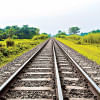
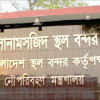
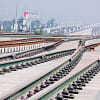
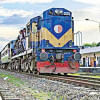
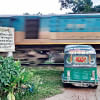


Comments